Even if you've been pregnant before, you and your partner will still have lots of questions about how you can look after yourself and your bump over the 9 months you are pregnant. Here we have some answers to common questions, including answers from expectant mums and dads all over Scotland. Remember, if you can't see what you are looking for you can always ask your midwife who will be able to help you.
Common pregnancy questions
How will I feel when I'm pregnant?
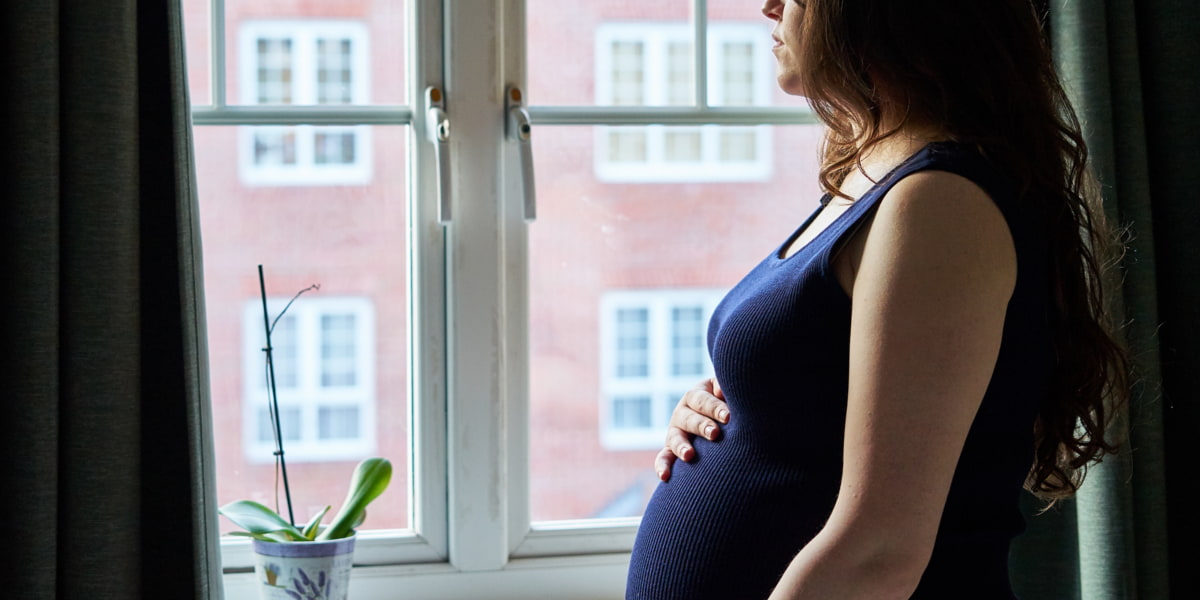
Everyone is different, but hormones can cause lots of changes in your body and the way you feel. Some of us may have tender breasts, get tired easily or feel sick (at any time of the day, and not just in the morning). Even if you were planning on becoming pregnant, realising that you are can still come as a bit of a shock, so don’t worry if you feel up and down.
Why do I need a midwife?
Your midwife will make sure that you get the best possible care, tailored around you.
It’s known that high quality care throughout pregnancy, birth and following the birth can have a really positive effect on the health of women and babies, and on the healthy development of children throughout their life. That’s why your midwife, and other health professionals, work hard to make sure that wherever you live in Scotland and whatever your circumstances, we all have a positive experience of maternity and neonatal care.
Your midwife will be there for you every step of the way, supporting you throughout your pregnancy as well as after the birth. Chat with them about your needs and choices and then you can work together to plan what’s best for you and your baby.
How do I get a midwife?
Finding a midwife to help you through your pregnancy is easy. There's no need to see your GP first, you can book direct with a midwife. In most Health Board areas, you can make your first midwife appointment by asking your GP receptionist.
Watch a short film to see what happens at your first appointment by joining expectant mum Chloe on her first visit to her midwife Lauren.
Visit Ready Steady Baby for more help, hints and tips on getting ready for parenthood.
When should I arrange to see a midwife?
You should make an appointment with a midwife as soon as possible after finding out that you’re pregnant, even if you're a mum already. Getting in early means your midwife can help plan the best care for you and your baby.
For more information visit Ready Steady Baby.
Can my partner come to my appointments with me?
Absolutely! Dads and partners are very welcome at all appointments. It’s great to have someone to support you and to ask questions too. Here are some more ways your partner can support you.
Should I go to antenatal classes?
Absolutely! Antenatal classes are a great way to learn more about your pregnancy, plan for the birth and meet other expectant mums. They’ll also help you prepare to become a parent when the time comes to take your wee ones home.
Antenatal classes are also a great opportunity for the babies’ father, your partner or your birthing partner to get involved and find out what they can do to support you.
Your midwife will tell you about free antenatal classes in your area. If you’re expecting twins, triplets or more (‘multiples’), it’s a good idea to attend antenatal classes specially tailored for multiple births, like the classes run by the Twins Trust. Ask your midwife for more information.
Most antenatal classes start at around 8-10 weeks before your due date, but it’s a good idea to sign up as soon as you know you’re pregnant, to make sure you get a place. If you’re expecting twins or more, it’s a good idea to start the course earlier, as multiples are more likely to come early. Your midwife can advise you on this.
Do I need to get any vaccinations?
The best way to protect yourself and your baby from serious disease and illness is to get the recommended vaccines at the right time. NHS Scotland recommends that pregnant women should have the COVID-19, flu and whooping cough vaccines. You can get the COVID-19 and flu vaccines at any stage of your pregnancy, while whooping cough is recommended from week 16. Ask you midwife for more information on how to get your vaccines.
You can find out more about the immunisations offered during pregnancy and why they’re so important on the NHS Inform website.
Is it true I can get free dental care when I'm pregnant?
Yes! Speak to your midwife who can tell you more, and explain how to get it.
How do I register for my Baby Box?
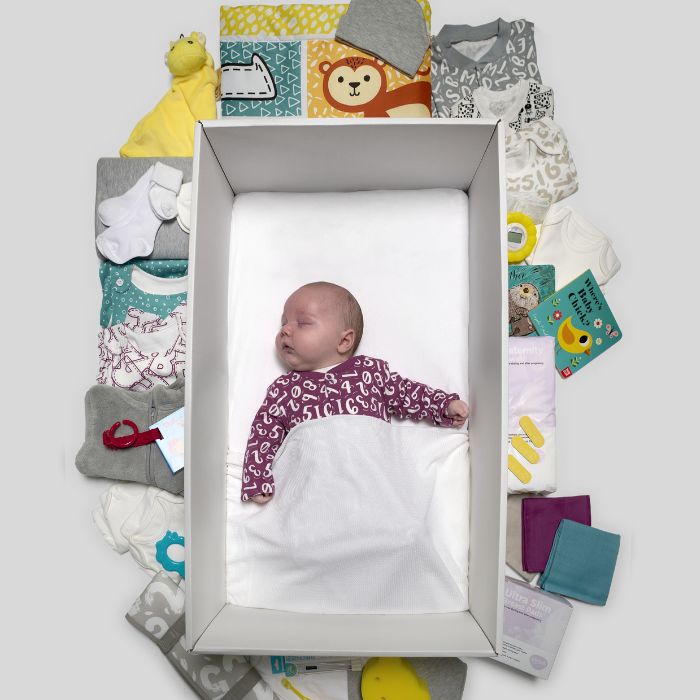
Scotland's Baby Box helps families prepare for the arrival of their baby – it's amazing how much stuff babies need! It’s really easy to sign up for your Baby Box. When you’re about 20-24 weeks pregnant, your midwife will fill in a Baby Box registration card with you at your regular antenatal appointment. Your midwife will send this card away to register you for your Baby Box, so you won’t need to do anything else. You can find out more about your Baby Box here.
If you’re expecting twins or triplets or more you can apply for a box for each baby.
What if I have any bleeding during my pregnancy?
If you experience any bleeding, tell your midwife straight away and get her advice.
Can I exercise when pregnant?
Yes, you can! Staying active is good for you and your baby. It can help you control weight gain, improve fitness, reduce high blood pressure, improve sleep, and improve your mood. All good!
How much exercise should I do?
We know that you’ll have loads of other things to fill your day, but try to squeeze a little exercise here and there. Try and aim for about 150 minutes a week. This might sound like a lot – but if you break it up into two 15-minute bursts, 5 times a week, you’re there! You could do it in a couple of little walks each day, over the course of the week. If you’re already very sporty, you may have to cut down a bit while you’re pregnant. As a general rule, if you feel better for it, then keep doing it. But stop exercising if you feel it’s becoming uncomfortable for you. Your midwife can give you some advice on getting the balance just right.
What should I eat when pregnant?
We know that morning sickness makes eating and drinking challenging – but trust us, a good diet can help you feel so much better, from the inside out.
- It’s important to stay hydrated, so try to boost the amount of water you drink each day.
- Try and eat at least 5 portions of fruit and vegetables a day. They’re a good source of vitamins, minerals and fibre, and you can eat them fresh, frozen, from a tin, dried or juiced – whichever way you like them. There’s a handy guide to portions here.
- Every day, try to include 3-4 portions of carbohydrates. Things like bread, cereal, noodles, pasta, rice and potatoes. Even better, go for wholegrain or whole wheat varieties.
- Making sure you’re getting enough dairy and Vitamin D means your wee baby’s bones will harden as they develop. Dairy contains calcium and is found in foods like yoghurt, milk and hard cheese. You’ll find some great ideas and options for getting your daily dairy here.
- You can’t actually get enough Vitamin D from food alone, and a lot of it comes from sunshine. Since we don’t have much sun in Scotland, it’s best to take supplements all year round while you’re pregnant. You don’t need to buy expensive multi-vitamins. Everyone who's pregnant in Scotland can get free Healthy Start vitamins throughout their pregnancy, which contain Vitamin D. These are available from your midwife.
If you want to find out more about what you can and can't eat during pregnancy, visit the Ready Steady Baby website. Your midwife will also be able to talk you through the best ways to fit healthy food into your diet.
What foods should I avoid during pregnancy?
You’ve probably heard rumours about things you can’t eat during pregnancy. We’re happy to say that most foods are totally fine, and there are just a few things you should avoid.
If you’re pregnant, it’s important to make sure you thoroughly cook any ready-to-eat smoked fish you buy, to avoid any risk of listeria poisoning. This includes fish in sushi. You can find out more about this on the Food Standards Scotland website.
What other pre-natal vitamins or supplements do I need?
You need to be at your healthiest when you’re pregnant or trying to conceive, so vitamins and minerals are even more important. Vitamins A, C, D are the ones you need the most, and Iron is also at the top of the list because it needs time to build up throughout pregnancy.
The free Heathy Start vitamins that are available are a great starting point but it’s also good to combine these with healthy meals that provide a source for these vitamins. We know it’s hard to have these in every meal, but here are a few foods you can find them in:
- red meat
- eggs
- pulses
- wholegrain bread
- dark green vegetables
You could try adding some to every meal to make sure your iron levels stay high.
To find out more about how vitamins and minerals can help you look after yourself during your pregnancy, ask your midwife or visit Ready Steady Baby.
Why should I be taking folic acid tablets?
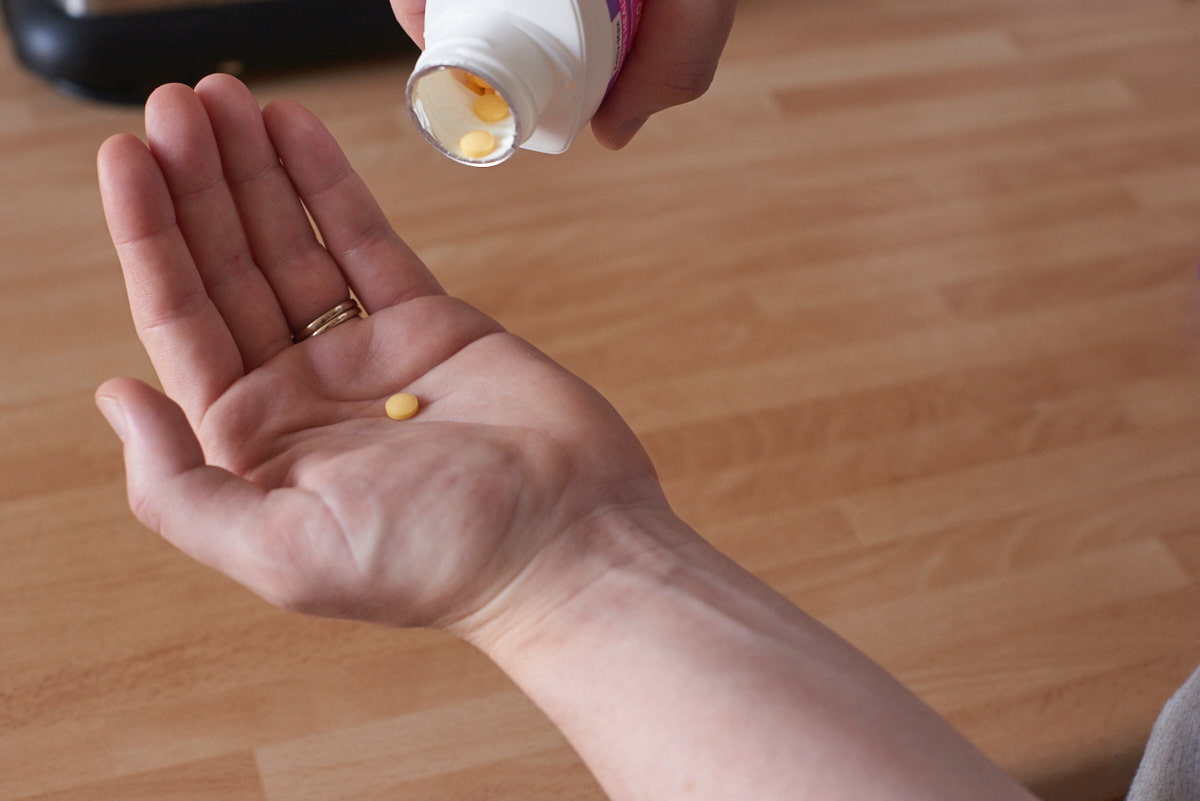
Folic acid is totally natural and is a really good supplement when you’re expecting. It’s important for helping your baby develop, and reduces the risk of neural tube defects, such as spina bifida. Taking this supplement before and during pregnancy is important because the spinal cord forms in early pregnancy. It’s best to take folic acid while you’re trying to get pregnant, and continue taking it daily until week 12 of your pregnancy.
You can find out more about folic acid, and the other vitamins and minerals which are important during pregnancy, on NHS Inform.
How much caffeine can I have during pregnancy?
It’s best to cut right back, as caffeine can affect the birth weight of your baby. Generally, a cup of tea or coffee a day is fine. We know it’s hard but cut out fizzy drinks because the caffeine and sugar levels can be really high. You’ll find more information on eating healthily here.
Can I drink alcohol while I'm pregnant?
You shouldn’t drink any alcohol at all during pregnancy, as it could be harmful to your baby. By making the positive choice not to drink any alcohol while you’re pregnant or trying for a baby, you can feel confident that you’re helping to keep your baby safe and healthy.
What about smoking and pregnancy?
It’s not advisable to smoke while you’re pregnant. Do not let anyone else smoke around you, or in rooms where you and your baby will be. Smoking can cause pregnancy and labour complications, such as your baby being born too early or weighing less than normal. A baby with a low birth weight is more likely to pick up infections, have breathing difficulties and other health problems throughout their childhood. Giving up smoking is the best thing you, your partner and family can do for you and your baby. As soon as you stop, you reduce the risk of miscarriage or stillbirth, and risks to your baby such as cot death.
For more information on reasons to stop visit Ready Steady Baby. For help to stop call Quit Your Way on 0800 84 84 84 you can find out more about Quit Your Way here.
What can I do if my back or hips are sore?
As your baby grows inside you it puts a little bit more strain on your body, and that can lead to a sore back and hips in the final months of pregnancy. Doctors advise, that moving around as much as possible helps and, if you can, a bit of swimming and stretches (like yoga) can also help relieve aches and pains. But if you get really sore, speak with your midwife, as there might be extra support available to you.
When will I start to feel the baby kicking?
Most mums feel the first fidgets of their wee one – known as ‘quickening’ – between weeks 14 and 26 of their pregnancy, but it does vary. After those first little flurries, you’ll get to know your own baby’s pattern of movements. Remember, you can talk to your midwife about what to expect. And you’ll probably start to feel your bond with your baby growing as you get use to their movements.
What can I do to connect with my baby in the womb?
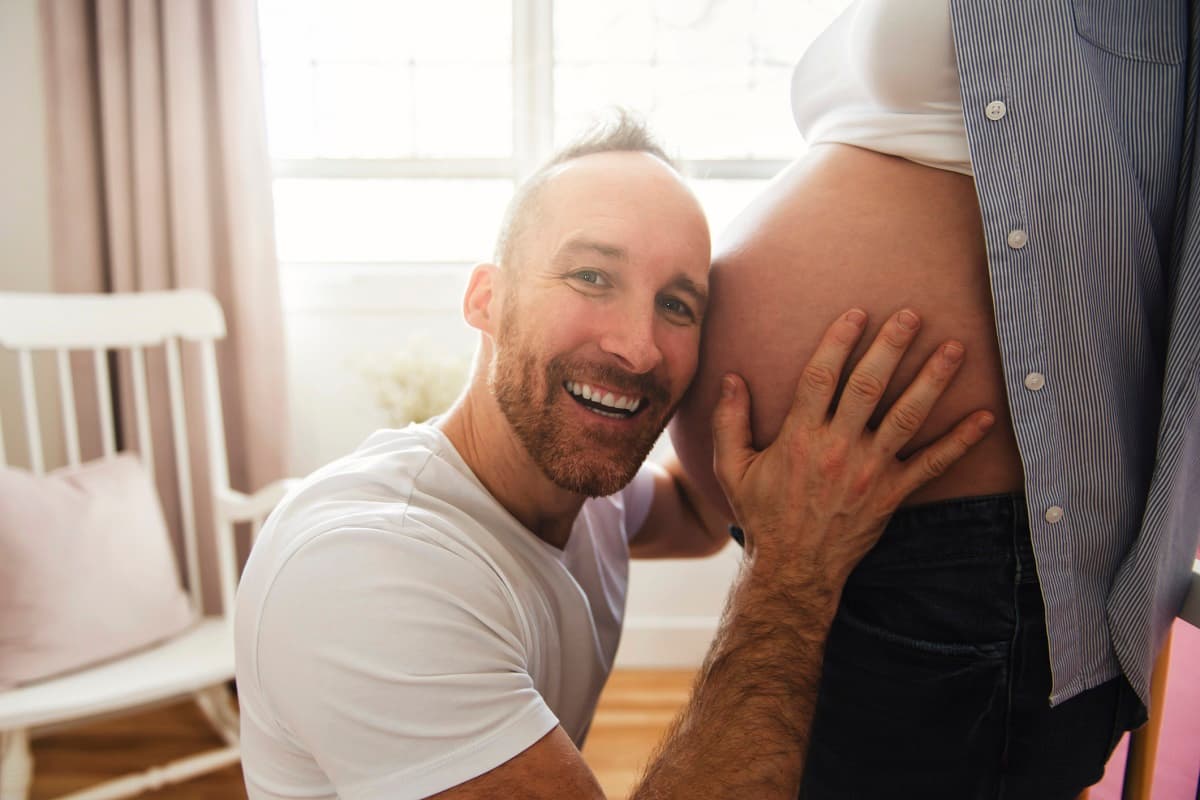
It might seem strange, but you can start to communicate with your baby before they’re born! By talking, singing and reading to your bump you’re helping your wee one get used to the sound of your voice and helping their development as well. You can also find out more about the benefits of reading to your baby before they’re born on the Scottish Book Trust website.
Are there any benefits or grants available?
There are various benefits and grants available when you’re pregnant, like the Pregnancy and Baby Payment and Best Start Foods, which helps buy healthy food. If you're eligible, you can apply for Best Start Foods as soon as you know you're pregnant. Our page on benefits, grants and support for families has more information.
If you’re expecting twins or more, you’ll receive an extra Pregnancy and Baby Payment – you can find out more about this on the mygov.scot website.
What if I'm expecting twins or more?
Finding out you're pregnant with twins, triplets or more (‘multiples’) can come as a big surprise. So it's totally natural to feel a wide range of emotions: overwhelmed, excited, anxious, happy or scared. But try not to worry – your midwife is there to support you every step of the way, and you'll receive specialist maternity care, including more appointments and scans at a specialist Twin/Triplet clinic. You can find out more about this on the following websites:
If you're having multiples, it's more likely that your babies will come early or that you’ll be induced early. (This is when your labour is started by your midwife or another health professional – you can find out more about induced labour on NHS Inform’s Ready Steady Baby website.)
Babies born as part of a twin or multiple pregnancy are more likely to need neonatal care, and it's possible one or more of your babies may need to spend some time in a neonatal unit. So it's best to be prepared for this. You can ask for information from the neonatal team and see whether you can visit a neonatal unit or get a virtual tour. The staff can explain how the different machines help babies, and this will make it less scary if one or more of your wee ones does need to be cared for there. Generally, neonatal units try to keep twins or multiples together, so you’ll be able to look after both or all your babies in the same place.
You can find out more about neonatal care on the Twins Trust website and in this helpful leaflet from the Scottish Perinatal Network.
The Twins Trust website has lots of useful resources to help you get ready for your babies' birth. Making practical plans, like working out what you need for your new arrivals and looking at your finances, can help you feel more in control of the situation. Joining an online or in-person community of other parents of multiples will also really help you prepare. Twins Trust can help you with all these things.
More information
For more information on looking after yourself throughout your pregnancy, ask your midwife or visit Ready Steady Baby.
 Activities & Play
Activities & Play Behaviour
Behaviour Childcare
Childcare Development & Growing Up
Development & Growing Up Family, Friends & Relationships
Family, Friends & Relationships Feeding Your Baby
Feeding Your Baby Food & Eating
Food & Eating Health & Safety
Health & Safety Mental Health & Wellbeing
Mental Health & Wellbeing Money & Work
Money & Work Online Behaviour & Safety
Online Behaviour & Safety Pregnancy & First Days
Pregnancy & First Days School & Education
School & Education Sleep
Sleep

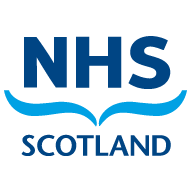
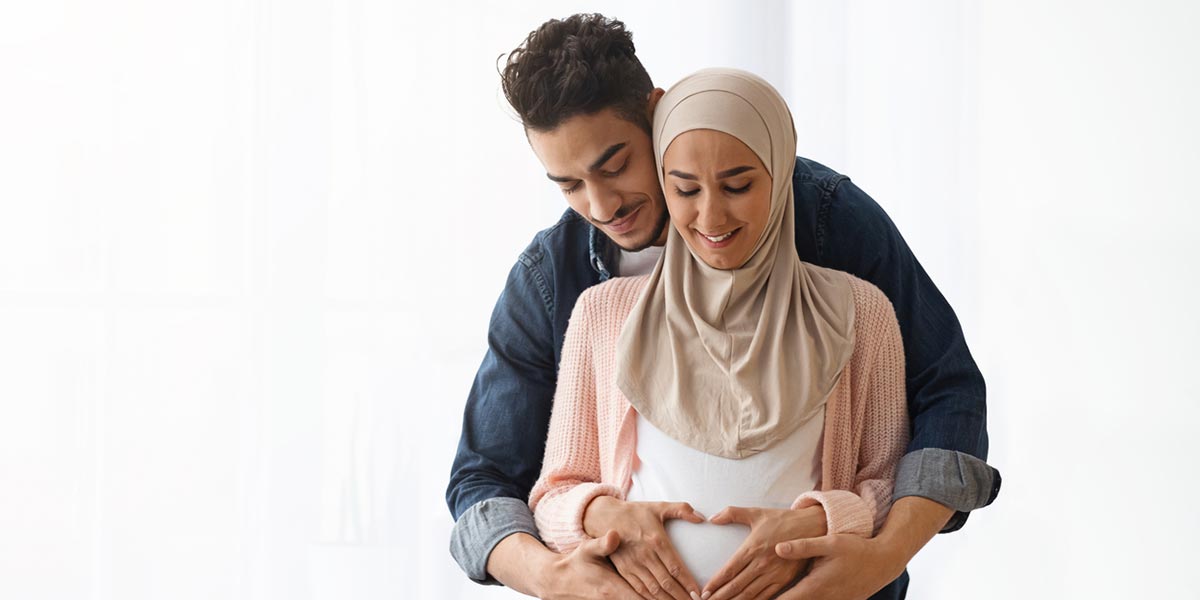
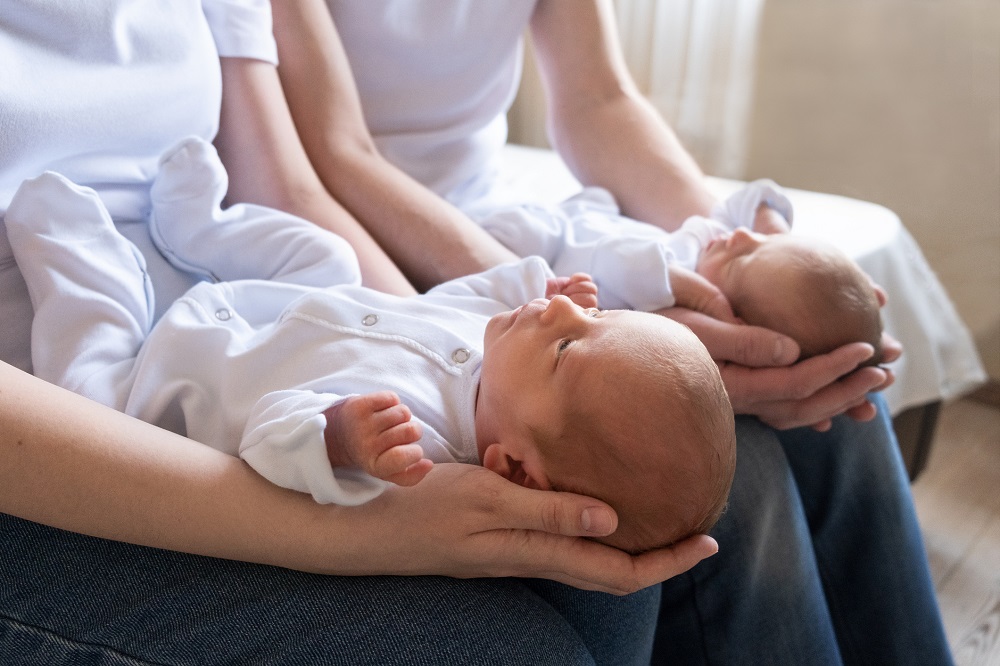
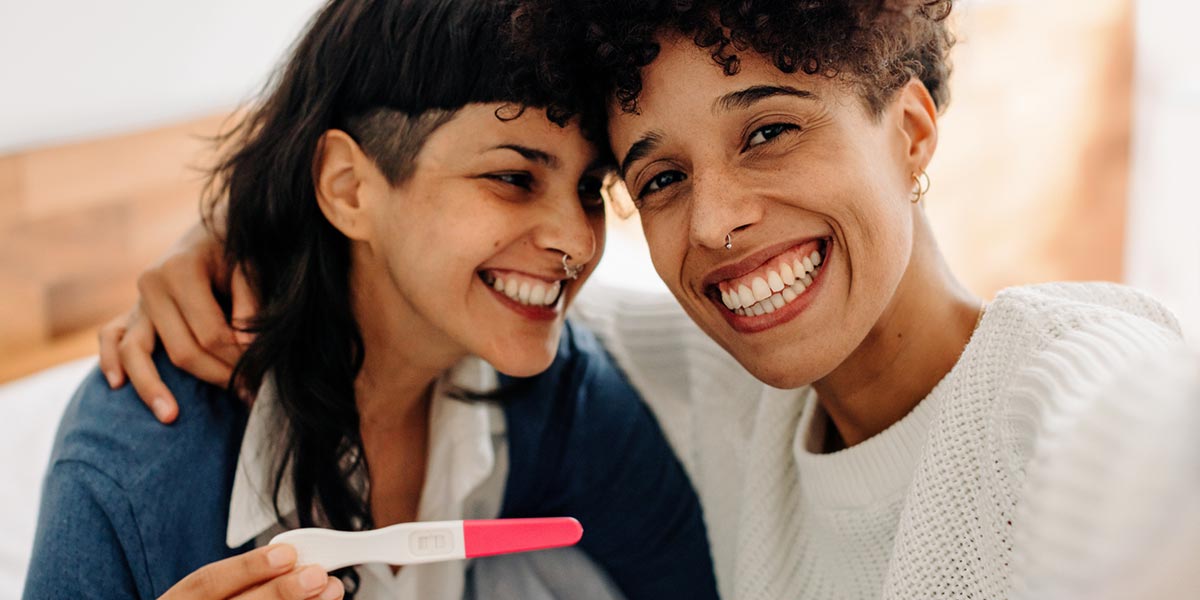
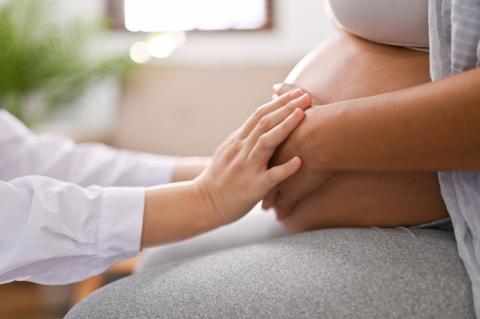
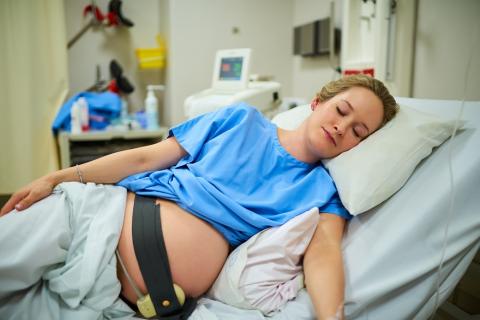
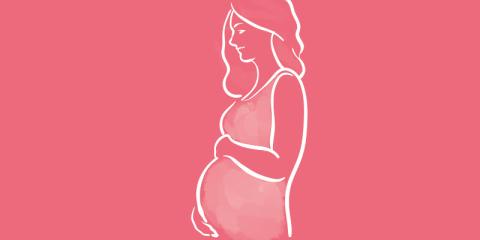

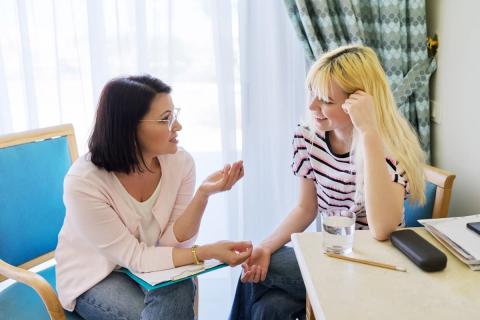
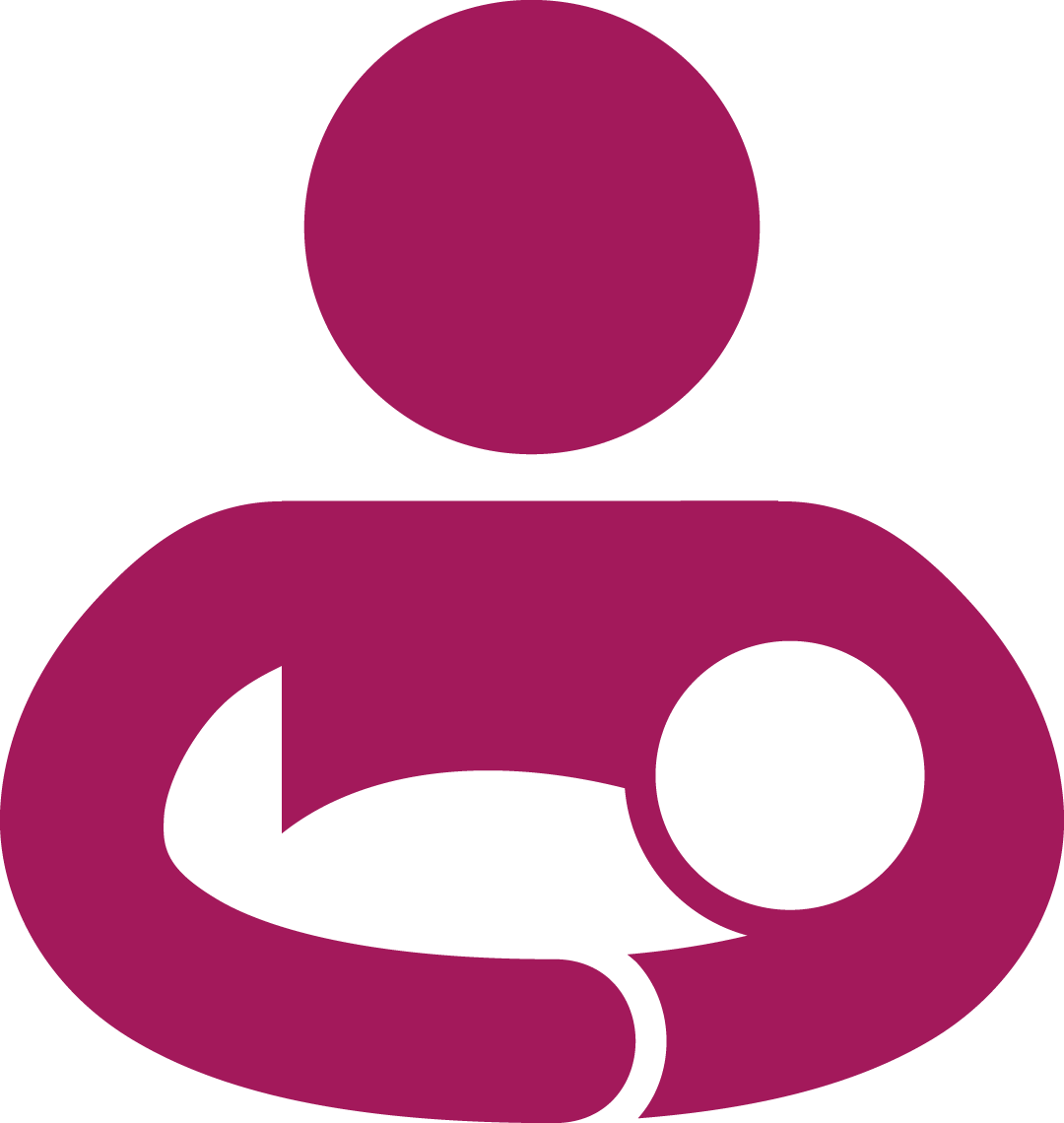 Feeding Your Baby
Feeding Your Baby
 Sleep
Sleep